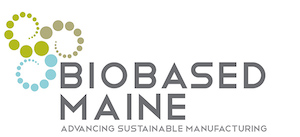Two New Bioplastics Projects Put FBRI In A Lead

Professor Pendse
FOREST BIOPRODUCTS RESEARCH INSTITUTE | 01.28.2010 This opportunity to utilize biomass wood for polymers in leading consumer products is an important new strategic direction for our efforts at the University of Maine.
The Forest Bioproducts Research Institute (FBRI) is now active in two Sustainable Bioplastics projects in collaboration with consortia of private companies and academic collaborators to conduct joint research and development activities that will lead to the production of sustainable bioplastics using renewable resources from the region. These efforts to date have received broad based funding from consortium members and various state and federal grants. Lab-scale fermentation studies have shown the potential to produce these key bioplastics from a range of potential feedstocks. Several industrial sites in the region with significant existing commercial infrastructure (such as on-site electricity and steam generation, fresh and waste water treatment capacity, and railway transportation access) have been evaluated for the potential to host fermentation and/or bioplastics polymerization operations. A market survey of potential bioplastic users was conducted and used to estimate the current market size and the potential growth rate for substituting bioplastics for petrochemical-based plastics.
One of the projects, supported by the Maine Technology Institute (MTI) has been focused on demonstrating the economic viability of producing polylactic acid (PLA), from potato waste and culls, as well as from sugars isolated from forest biomass, for fiber and foam markets. The Sustainable Bioplastics Council of Maine was officially incorporated in the State of Maine on October 20, 2009. The council supports and promotes the use and production of bioplastics from renewable feedstocks consistent with the principles of Green Chemistry with focus on sustainability. The council membership is comprised of potential feedstock providers, technology suppliers, large and small manufacturers, and non-profit organizations. This council is coordinating the PLA project with a total budget of $1 million.Mike Biladeau and Peter VanWalsum are coordinating this project for FBRI.
The other project, supported by a $1.8 million grant to Itaconix LLC from US Departments of Agriculture and Energy (USDA and USDOE) is focused on utilizing woody biomass in production of polyitaconic acid (PIA) for super absorbent and dispersant markets. The PIA project is a partnership of three New England states involving Itaconix LLC of Dover, New Hampshire; Microbia Inc. of Lexington, Massachusetts, and the FBRI at the University of Maine.
These projects will focus on advancing the technology of producing bioplastics and to develop new applications for sustainable bioplastics that will generate new economic development opportunities for rural areas and for the innovative business community of the Northern New England Region.
